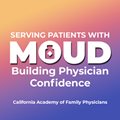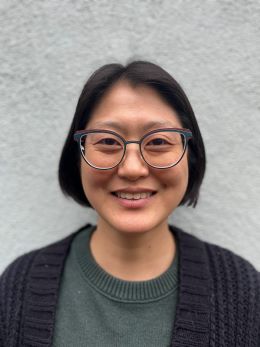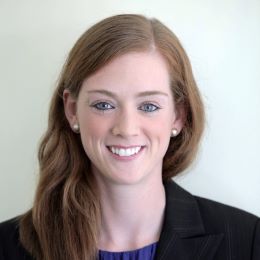
Break the Stigma, Save a Life
While gains have been made in reducing stigma around certain conditions, like depression and obesity, little progress has been made in removing the stigma around substance use disorders. The public and even health care providers continue to blame patients for their disease even though there is clear consensus that addiction is a complex brain disorder and not the result of moral weakness and flawed character. When people with addiction are stigmatized and rejected, especially by those within healthcare, it only contributes to the vicious cycle that entrenches their disease.
This activity will shine the light on shame, stigma, and MOUD (medication for opioid use disorder) in the light of harm reduction as well as the importance of meeting patients where they are.
Learning Objective:
At the end of this session, learners should be able to:
- Enhance knowledge about stigma surrounding substance use disorder and its treatment.
- Reflect on how stigma and racism have influenced drug policy in the U.S., including recent responses to the opioid epidemic.
- Recall the meaning of harm reduction and related concepts
- Identify ways to reduce harm related to substance use
- Identify ways to promote health and dignity with people who use drugs
Target Audience:
This activity is designed for family medicine physicians, and other primary care team members.
Participation and Credit:
To earn credit for this educational activity, learners must register and fully participate. Before beginning the activity, learners should review the target audience, learning objectives, and author disclosures. Learners are required to engage with the educational content online and complete the activity evaluation. Upon successful completion of these requirements, a certificate will be available as a downloadable link. Learners may print the certificate for their records; however, they may not alter it. For information regarding the applicability and acceptance of continuing education credit for this activity, please consult your professional licensing board.
Unlabeled Use Disclosure:
This activity will not include discussions of products or devices that are not currently approved for use by the Food and Drug Administration (FDA).
Support:
This activity is sponsored by the California Academy of Family Physicians and supported by the National Institute on Drug Abuse (NIDA) and the California Department of Health Care Service (DHCS).
Fee:
There is no charge for this activity.
Cultural/Linguistic Competency:
CAFP policy and California state law requires that each learning activity have elements of cultural and linguistic proficiency included in the content. The definition of cultural and linguistic competency is the ability and readiness of health care providers and health organizations to humbly and respectfully demonstrate, effectively communicate, and tailor delivery of care to patients with diverse values, beliefs, identities, and behaviors, in order to meet patients’ social, cultural, and linguistic needs as it relates to patient health. This activity meets these requirements.
Implicit Bias:
CAFP policy and California state law requires that all CME activities comprising a patient care element include either (1) examples of how implicit bias affects perceptions and treatment decisions of physicians and surgeons, leading to disparities in health outcomes and/or (2) strategies to address how unintended biases in decision-making may contribute to health care disparities by shaping behavior and producing differences in medical treatment along lines of race, ethnicity, gender identity, sexual orientation, age, socioeconomic status, or other characteristics. This activity meets these requirements.
Privacy Policy:
The California Academy of Family Physicians (CAFP) is committed to protecting the privacy of its members and customers. CAFP maintains safeguards to store and secure information it has about members and customers. The safeguards may be physical, electronic or procedural. For more information, contact [email protected].
Questions:
For questions regarding the content of this activity or for technical assistance, contact [email protected].
The CAFP has made all reasonable efforts to ensure that information contained herein is accurate in accordance with the latest available scientific knowledge at the time of accreditation of this continuing education program. Information regarding drugs (e.g., their administration, dosages, contraindications, adverse reactions, interactions, special warnings, and precautions) and drug delivery systems is subject to change, however, and the learner is advised to check the manufacturer's package insert for information concerning recommended dosage and potential problems or cautions prior to dispensing or administering the drug or using the drug delivery systems.
Approval of credit for this continuing education program does not imply endorsement by CAFP of any product or manufacturer identified.
Any medications or treatment methods suggested in this CME activity should not be used by the practitioner without evaluation of their patient's condition(s) and possible contraindication(s) or danger(s) of use of any specific medication.
Copyright:
© 2025 California Academy of Family Physicians. No part of this activity may be used or reproduced in any manner whatsoever without written permission except in the case of brief quotations embedded in articles or reviews.
Sky Lee, MD

Dr. Lee’s primary interests are to improve care and access for vulnerable populations, to empower both patients and providers to be advocates for their communities and to dismantle white supremacy within ourselves and in medicine. She’s been on the faculty of UC Davis Medical Center, and has worked with the California Bridge program. She currently works with people who are incarcerated.
Mary Kathryn (MK) Orsulak, MD

Dr. Orsulak is passionate about decreasing barriers to primary care and integrating harm reduction when providing patient care. She serves patients at the Sacramento County Primary Care Clinic, Mercy Clinic at Loaves and Fishes, and the Sacramento County Department of Public Health Sexual Health Clinic. Dr. Orsulak is an attending on the inpatient UC Davis Substance Use Intervention Team and working on projects to improve access and quality of care for people living outside in Sacramento.
Sky Lee and Mary Kathryn Orsulak have no relevant financial relationships with ineligible companies to disclose.
Disclosure Statements:
The CAFP Committee on Continuing Professional Development is responsible for management and resolution of conflict for any individual who may have influence on content, who have served as faculty, or who may produce or help produce CME/CPD content for the CAFP. Management/Resolution may include learner notification, peer review of content before presentation, changing topics, or even dismissing a potential faculty member.
It is the policy of the CAFP to ensure independence, balance, objectivity, scientific rigor, and integrity in all continuing education activities. All individuals with potential to influence the content of this program have submitted Conflict of Interest declarations that have been reviewed according to policy. Learner notification of declarations is below. All individuals with potential conflicts have been contacted by CAFP staff or CCPD members, and issues of conflict have been discussed, managed, and resolved.
CME Planners:
The following planner(s) have no relevant financial relationships to disclose: Laurie Isenberg
The AAFP has reviewed 8-Hour MATE Act Training: Treating and Managing Patients with OUD/SUD, and deemed it acceptable for AAFP credit. Term of approval is from 03/15/2025 to 03/14/2026. Physicians should claim only the credit commensurate with the extent of their participation in the activity.
This session, Break the Stigma, Save a Life, is approved for 1.0 AAFP Prescribed credit.
AAFP Prescribed credit is accepted by the American Medical Association as equivalent to AMA PRA Category 1 Credit™ toward the AMA Physician's Recognition Award. When applying for the AMA PRA, Prescribed credit earned must be reported as Prescribed credit, not as Category 1.
The California Academy of Family Physicians is accredited by the Accreditation Council for Continuing Medical Education (ACCME) to provide continuing medical education for physicians.
Available Credit
- 1.00 AAFP Prescribed
- 1.00 AMA PRA Category 1 Credit™

 Facebook
Facebook X
X LinkedIn
LinkedIn Forward
Forward